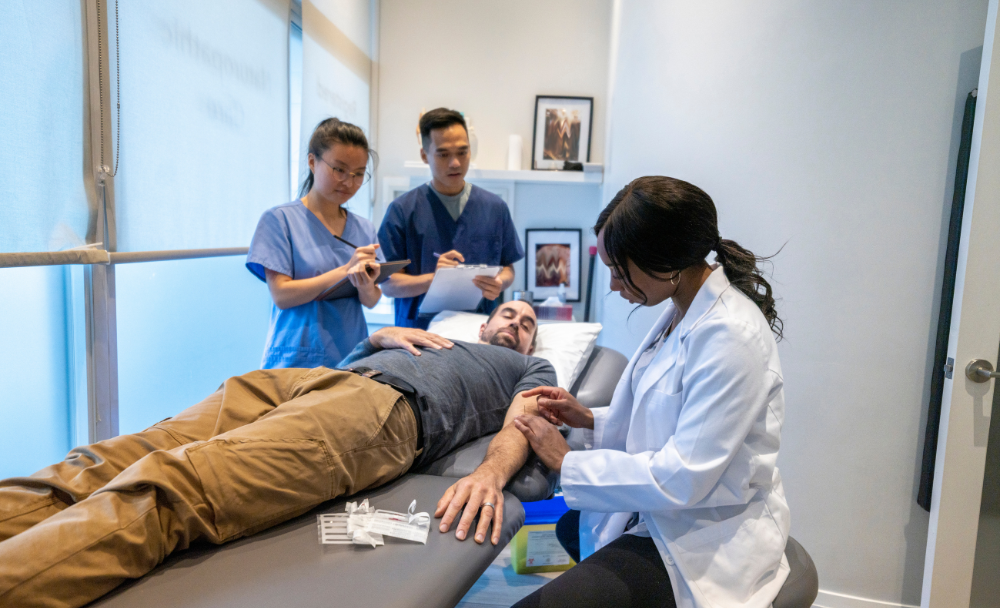
The rise of outpatient surgical centers has revolutionized the healthcare industry. As the demand for faster and more efficient healthcare services grows, outpatient surgical centers have grown significantly in recent years. While this has brought numerous benefits to patients, it also presents a new set of challenges, particularly when it comes to finding the right healthcare professionals.
This blog explores the importance of finding the right team and provides tips and advice on how to do so. Whether new or experienced in the industry, this blog provides the information needed to build a successful team for your outpatient surgical center.
The Importance of Finding the Right Healthcare Professionals
Finding the right healthcare professionals is critical for outpatient surgical centers. A well-trained and experienced team of healthcare professionals can make all the difference in terms of patient outcomes, satisfaction, and safety. The right healthcare professionals should have the necessary skills, knowledge, and expertise to deliver high-quality care and support to patients undergoing surgery.
Having the right healthcare professionals on your team can improve patient outcomes and satisfaction by ensuring that procedures are performed accurately and efficiently. They can also help minimize the risk of complications and infections, which can lead to a quicker recovery for patients.
Additionally, having the right healthcare professionals can also improve patient satisfaction by providing a higher level of customer service and support. Patients are more likely to return to your center if they receive excellent care and support, which can also help improve your center’s reputation and overall success.
Factors for Finding the Best Healthcare Professionals for Outpatient Surgical Centers
Several factors should be considered when searching for the right healthcare professionals for an outpatient surgical center. Some of the most important include:
Education and Training

Look for healthcare professionals who have received proper education and training in their respective fields. They should have the necessary credentials and certifications that demonstrate their expertise and proficiency. Additionally, you may want to consider healthcare professionals who have completed advanced training or certifications in specific areas of surgery or patient care.
Experience
Experience is a crucial factor in finding the right healthcare professionals. Look for professionals who have several years of experience working in outpatient surgical centers. This will help ensure that they have the skills and knowledge needed to provide high-quality care to patients. Experience can also help healthcare professionals better handle emergency situations or unexpected complications that may arise during surgery.
Reputation and Referrals
The reputation of a healthcare professional is a good indicator of their quality of care. Obtain recommendations from friends and family who have experienced similar procedures. You can also look for healthcare professionals who have received positive patient feedback by checking online reviews and ratings. You can also check with professional organizations and medical societies to see if they have any recommendations.
Personality and bedside manner
A healthcare professional’s personality and bedside manner can greatly impact a patient’s overall experience. Look for professionals who are warm, friendly, and approachable and who have a good bedside manner. This will help put patients at ease and increase their comfort level, which can lead to improved patient outcomes and satisfaction.
Communication Skills
Effective communication is essential for successful patient outcomes. Choose healthcare professionals who have strong interpersonal and communication skills and who can clearly communicate with patients and their families. This includes the ability to explain procedures and treatments in plain language, as well as provide updates and post-operative care instructions.
Professionalism
Professionalism is a key factor to consider when choosing healthcare professionals. Look for individuals who adhere to professional standards, maintain patient confidentiality, and follow ethical principles. These professionals should also be knowledgeable about current healthcare practices and trends and keep up-to-date with the latest developments in their field.
Ask the Right Questions
When meeting with potential healthcare professionals, it’s important to ask the right questions to determine if they are a good fit for your outpatient surgical center. Some questions to consider asking include the following:
- What is your experience working in outpatient surgical centers?
- What is your philosophy when it comes to patient care?
- What is your approach to patient safety and infection control?
- How do you handle patient complaints or concerns?
- What is your availability for patient appointments and follow-up care?
Trust Your Instincts
Ultimately, trust your instincts when it comes to finding the right healthcare professionals for your outpatient surgical center. If a professional seems like a good fit, go with your gut. If they seem to be lacking in any of the areas mentioned above, or if they don’t seem like a good fit, it may be best to move on and look for another healthcare professional who is a better match.
Listening to your instincts can also help you in making decisions that are best for your patients and your center. You may also want to consider seeking the advice of colleagues or industry experts to help you make an informed decision. Trusting your instincts, and seeking the guidance of others, can help you build a strong and successful team of healthcare professionals who will help take your center to the next level.
Key Takeaway
Finding the right healthcare professionals is crucial for the success and growth of any outpatient surgical center. By considering the factors mentioned above and asking the right questions, you can improve your chances of finding healthcare professionals who are a good fit and who will help provide high-quality care and support to your patients. Trusting your instincts is also an important part of the process and can help you make the right decisions for your patients and your center.

